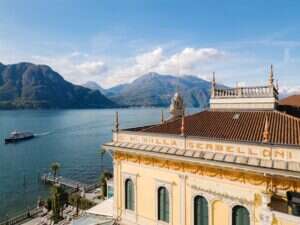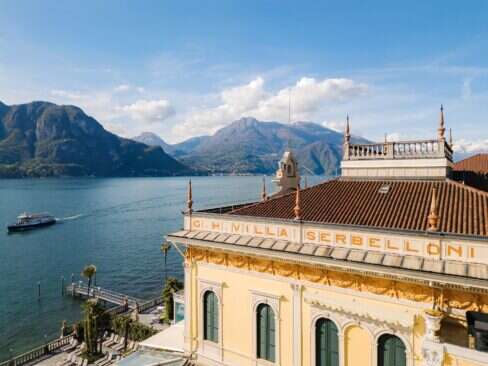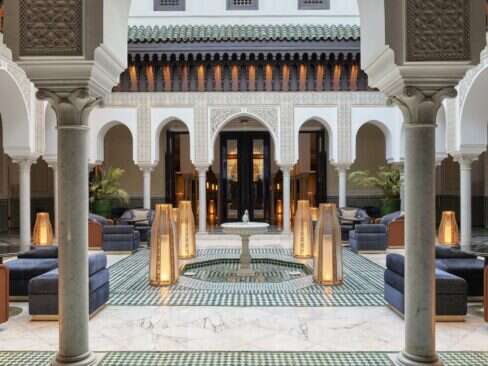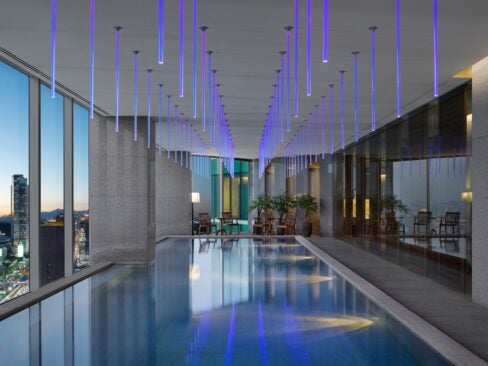2000 wins in ten years
In a further highlight on this year’s agenda of centennial celebrations, Bugatti Automobiles S.A.S. presented four Bugatti Veyron specials at Villa d’Este Concorso d’Eleganza. These one off models are reminders of Bugatti’s glorious motor-racing history which played a central role in popularising and ultimately establishing the myth which the brand continues to enjoy to this day.
The Bugatti brand is almost inextricably linked to the Type 35. The Type 35 Grand Prix was by far the most successful racing model. The unmistakable radiator grille and eight-spoke aluminium wheels of the Type 35 have become defining features of the Bugatti automobile. In its day, the Grand Prix was also well ahead of its time in terms of engineering ingenuity. The front axle design of this vehicle, which, for reasons of weight minimisation, is hollow, is a true masterpiece of workmanship and was deemed nothing less than revolutionary. Its springs were passed through the axle to produce a high level of stability. The Grand Prix’s brake drums were integrally fitted into its lightweight aluminium wheels. Unfastening the central wheel nut allowed the wheel to be easily removed within a matter of seconds and the brake to be exposed. This was a crucial advantage at the pit stop.
The blue racers made their first appearance on the race track at the Grand Prix held by Automobil Club de France in Lyon in 1924. In the decade that followed, they remained practically unchallenged thanks to sophisticated manufacturing efforts, their lightweight design and easy handling. During that ten-year era, they won almost 2000 races – more than any other model ever has. Grand Prix races were highly fashionable events in those days, and Bugatti was not the only brand with considerable interest in substantiating the reputation of its products by winning races. In fact, in the 1920s, Europe was regularly host to a number of different races in different countries on a single weekend. The teams set up by different automobile manufacturers competed at popular race circuits such as Targa Florio, Le Mans, Monza and Spa as well as in Rome, Nice, Antibes and even a village in Alsace.
The main reason Bugatti won such an enormous number or races – on the back of which successes the brand was also able to forge its image – was the fact that Bugatti sold not only its normal sports and touring cars to private buyers, but its racing cars too. Thus it was that its automobiles took part in such a large number of Grand Prix events.
This bestowed upon Ettore Bugatti a double success. He was able on the one hand to sell his racing cars expensively to wealthy private buyers with a keen sporting ambition and, on the other, to capitalise on their successes on international racing circuits – without actually having to make a single investment in these “marketing activities”. This stroke of genius by “Le Patron” not only brought him immortal fame, but a substantial fortune as well. A total of 350 legendary Type 35-series automobiles were ultimately built – in a wide variety of versions. Those that survived their racing days, accidents, World War II and all other risks over the years, have become coveted and highly priced collectors’ items.
Four Type 35 Grand Prix models – Four distinct personalities – Four Veyrons
Tradition being what it is, the Bugatti Veyron Specials built to mark the 100th anniversary of the brand feature the racing colours of the respective countries: blue for France, red for Italy, green for England and white for Germany. Each of the four new Veyrons has a specific “predecessor” in the form of an original Grand Prix Bugatti on which it was modelled. These four historic race cars represent the generation of legendary Bugatti Grand Prix racers which were piloted by world-famous race-car drivers and which scored countless racing victories in the 1920s and ‘30s. Each of the four Veyron Specials is named after a Bugatti race-car driver of the 1920s and 30s. Jean-Pierre Wimille has given the blue Veyron its name, Achille Varzi the red one, Malcolm Campbell the green one and Hermann zu Leiningen the white Veyron.
Jean-Pierre Wimille was one of the longest-serving drivers at Bugatti. He only joined the team in Molsheim in 1933, but subsequently remained loyal to the brand, ultimately driving home Bugatti’s last-ever victory in 1947 at Bois de Boulogne in a 4.7-litre Monoposto Type 59/50 B. Wimille’s many previous successes included winning the 24 Hours of Le Mans in 1937 and 1939. Achille Varzi was a member of the official Bugatti team from 1931 to 1933. He had already achieved many successes since 1928 driving a private Type 35 C, then later went on to win the Monaco Grand Prix, an event on Berlin’s Avus circuit and other races. As the setter of numerous world records for speed, the name Malcolm Campbell is firmly established in racing history. He also competed in countless “normal” races from 1911 and 1936, often piloting a Bugatti Type 39 A or Type 35, and he owned one of the legendary Type 57 S street sports cars. Prinz Hermann zu Leiningen’s career driving Bugattis began in 1927 when he purchased a Type 40 chassis, for which he had a racing body built. He went on to win a number or races in a privately owned Type 37 A before eventually standing in the spotlight of the international racing scene in a 35 C for several years from 1930 onward.
“We have put a lot of effort into translating colour and material, the defining characteristics of our historic role models, into the designs of the modern-day Veyrons,” explains Alasdair Stewart, Director Sales & Marketing at Bugatti Automobiles S.A.S. “We have taken extreme care to match the original colours of the original race cars, exterior and interior”
On Sunday, the four historic racing Type 35s and the four modern-day Centenaire Edition Veyrons will be exhibited alongside each other in the park of Villa Erba for the first and only time.
Ahead of that presentation, Bugatti will on Saturday be prominently represented in the park of Villa d’Este by a special-display-class exhibition of models, which will serve to portray the 100-year history of the brand. Bugatti’s participation in the classic Concorso d’Eleganza Villa d’Este at Lake Como will be the second highlight event to mark the carmaker’s centennial celebrations after it took part in the International Geneva Motor Show in early March. This latest event will be followed by the Pebble Beach Concours d’Elegance in California in mid-August and the main celebratory event on 12 September in Molsheim (Alsace), which has been the home of this unparalleled automobile brand for 100 years.
www.bugatti.com/









